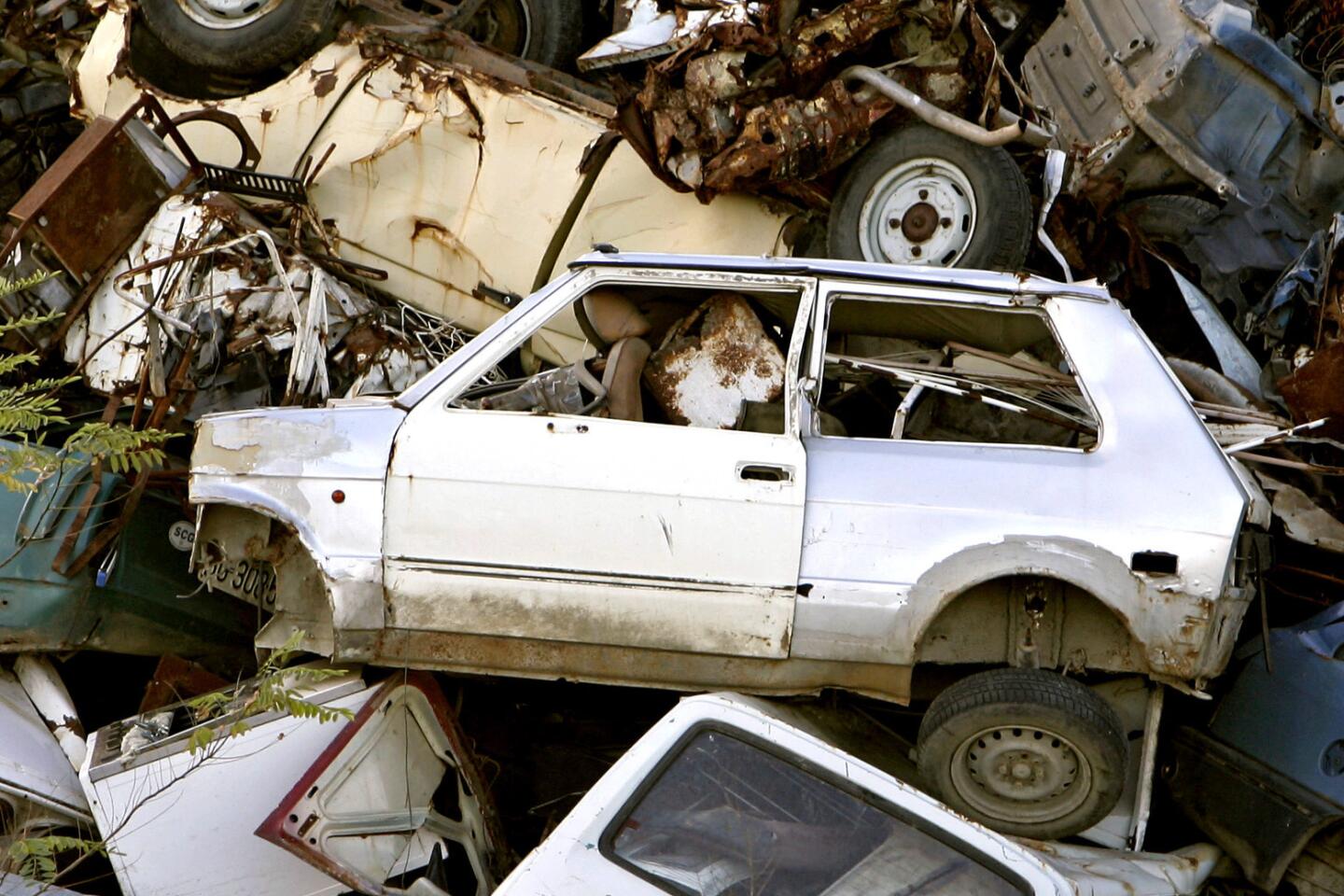Tesla’s fight with Chris Christie could shutter New Jersey stores
The strategy of Tesla Motors to sell its electric Model S sports sedan through company-owned stores took a hit this week when New Jersey required that autos sold in the state have to move through a middleman, namely a dealer.
At the urging of auto dealers, the New Jersey Motor Vehicle Commission changed a rule Tuesday to require a franchise license to sell new cars in the state. Tesla has two company owned stores in New Jersey stores -- in Short Hills and Paramus -- that were operating under different licenses.
Tesla can continue to sell cars at those sites until the rule takes effect April 1. Then it will have to open franchise dealers or have its New Jersey customers take delivery in other states. Tesla has not announced its plans.
The change irked Tesla, which claims New Jersey Gov. Chris Christie’s administration went back on its word to delay such a regulatory change so the issue could be debated by the state’s legislature.
Christie’s office disagrees, saying the rule doesn’t actually change existing policy but rather cleans up regulatory language to make it clear that auto companies can’t sell cars directly to consumers in New Jersey.
“This administration does not find it appropriate to unilaterally change the way cars are sold in New Jersey without legislation, and Tesla has been aware of this position since the beginning,” Kevin Roberts, a spokesman for Christie’s office, said in a statement.
Tesla argued car dealers are centered on selling gasoline-powered vehicles, aren’t interested in pitching electric cars and don’t have the skills to do so.
“This [sales] model is not just a matter of selling more cars and providing optimum consumer choice for Americans, but it is also about educating consumers about the benefits of going electric, which is central to our mission to accelerate the shift to sustainable transportation, a new paradigm in automotive technology,” Tesla said in a statement.
Texas and Arizona also ban automakers from selling cars directly to consumers. California allows manufacturers to operate their own stores if they don’t already have a dealer network for the brand, or if it is a temporary ownership of one year or less, said Aaron H. Jacoby, a Los Angeles lawyer who represents car dealers.
He said dealers are fighting Tesla’s efforts to set up its own sale channel because they fear it could eventually lead to other manufacturers doing the same.
“They see it as a disruptive force,” Jacoby said.
The New Jersey dealers argued selling cars through independent franchises is good for the public.
“There are substantial economic and public safety implications in the purchase of an automobile,” said Jim Appleton, president of New Jersey Coalition of Automotive Retailers. “The Tesla factory-owned store model destroys price competition and restricts consumer access to warranty and safety recall service.”
The franchised new-car dealership system dates to the start of the U.S. auto industry, when hundreds of manufacturers were fighting for market share. Setting up showrooms was expensive and time-consuming. So automakers sold other entrepreneurs the right to market their cars in specific cities. Consumers liked the setup because it provided them with a local business to take their cars for service and repairs.
Over time, car dealerships became crucial sources of employment and tax revenue for local communities. To prevent manufacturers from opening their own stores and undercutting neighborhood dealers, states developed laws governing the franchise relationship.
ALSO:
Why Tesla jilted California as site for battery plant
Consumer Reports names Tesla top pick in annual car rankings
Ford and Chevy trucks, Honda Accord most likely to last 200,000 miles
Follow me on Twitter (@LATimesJerry), Facebook and Google+.








